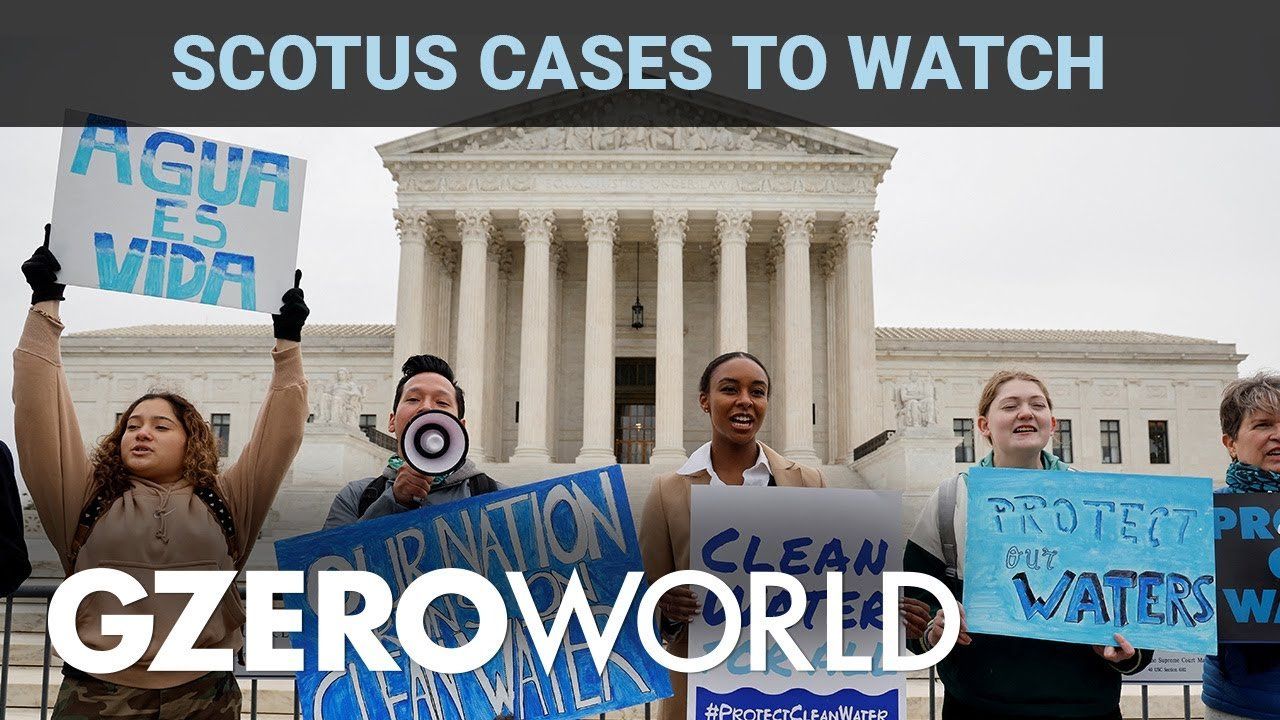
As the 2023-2023 Supreme Court session comes to a close, a flurry of major decisions are expected by the end of the month on the EPA, affirmative action, and student loan forgiveness. Emily Bazelon, Yale Law School Senior Research Fellow and host of Slate’s Political Gabfest podcast, stopped by GZERO World with Ian Bremmer to discuss some of the big cases argued before the court this term.
SCOTUS already issued a ruling in Sackett v. EPA, limiting the power of the Environmental Protection Agency to protect US wetlands and waterways. It’s the second ruling in a year where the justices significantly rolled back the federal government’s authority to regulate the environment.
“Millions of acres that have been regulated up till now won't be anymore,” Bazelon says, “And when you think about the record of the Clean Water Act for preserving and cleaning Americans’ waterways and rivers, now the EPA has a lot less reach to do that.
There are also two important cases in higher education––affirmative action and President Biden’s student loan forgiveness plan. Bazelon thinks that SCOTUS is ready to end race-based affirmative action in the US based on justices’ questioning in oral arguments. How the court will rule in the student loans case, however, is trickier to predict because loan forgiveness is somewhat tied to national emergency declaration for COVID, which ended in May.
For more on the Supreme Court and what to expect from anticipated rulings this year, tune into GZERO World with Ian Bremmer. Check local listings.
- What We’re Watching: SCOTUS mulling student debt relief, Blinken visiting Central Asia, Biden's partial TikTok ban, Petro’s post-honeymoon phase ›
- Senators want ethics rules for SCOTUS ›
- Podcast: An active US Supreme Court overturns "settled law" on abortion. What's next? ›
- Abortion pills likely headed to Supreme Court, says NYT Mag columnist Emily Bazelon ›
- Podcast: (Un)packing the Supreme Court with Yale Law's Emily Bazelon - GZERO Media ›
- Ian Explains: The US Supreme Court's history of political influence - GZERO Media ›
- Biden's Supreme Court reform has zero chance of becoming law - GZERO Media ›